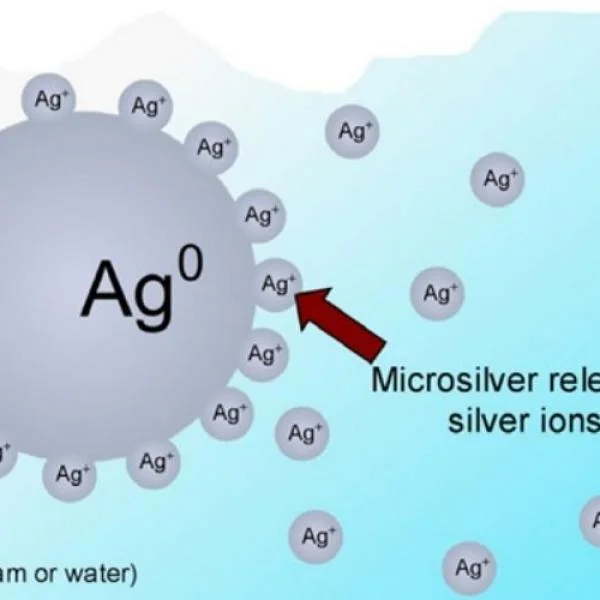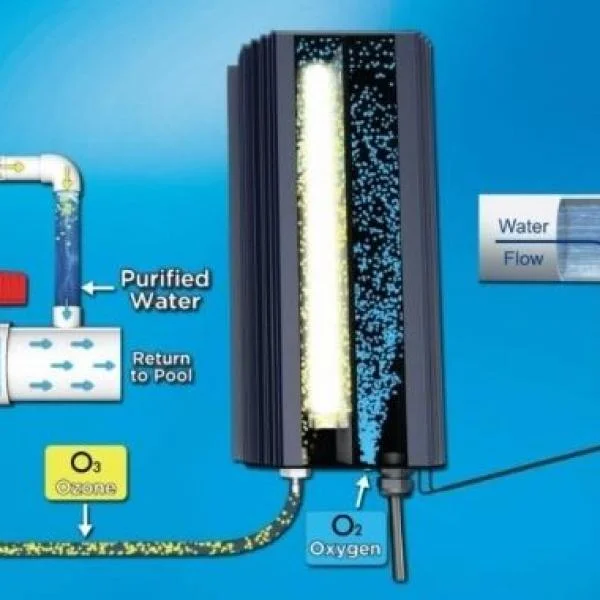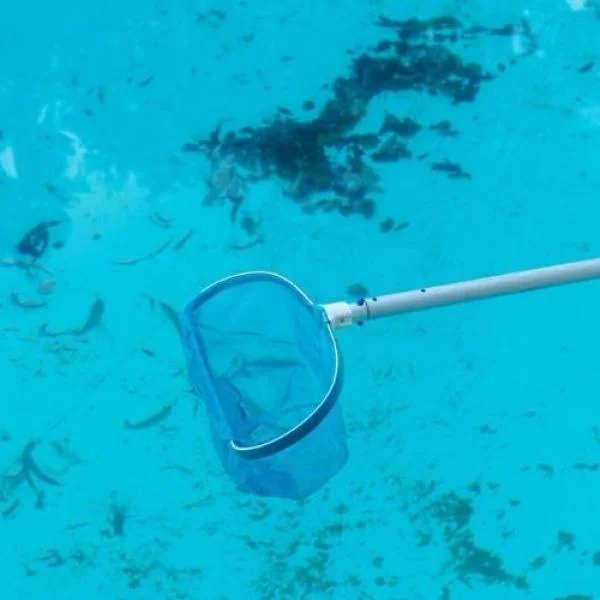
Ozone (O₃) is a powerful natural molecule known for its critical role in water purification. It is a form of oxygen that contains three oxygen atoms rather than the usual two. This unique structure gives ozone powerful oxidizing abilities, making it a highly effective agent in removing pollutants, bacteria, and viruses from the water. This article will explore how ozone works in water purification, its benefits, and how it compares to other purification methods.
What is Ozone and How Does It Work?
Ozone occurs naturally in the Earth’s atmosphere, primarily in the stratosphere, where it creates the ozone layer, which protects life on Earth from the sun's harmful ultraviolet (UV) rays. While ground-level ozone can be harmful in high concentrations, it plays a vital role in purifying water when used in controlled environments.
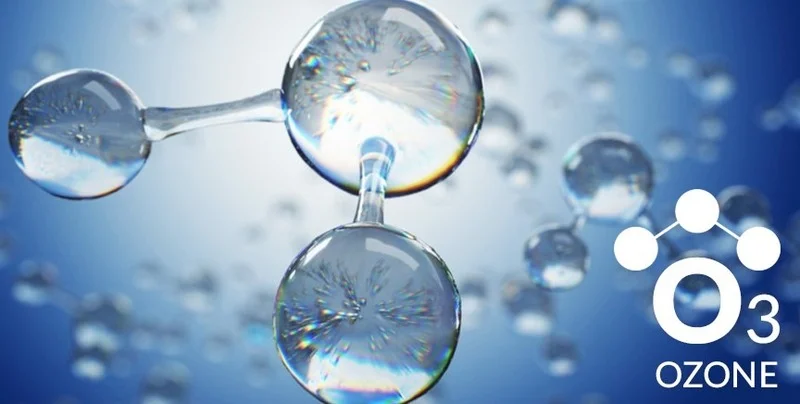
In terms of purification, ozone works by oxidation, which means it reacts with other substances and gains their electrons. When ozone molecules come into contact with organic materials, pollutants, or microorganisms, the extra oxygen atom detaches and binds to the target, destroying or neutralizing it. This process makes ozone highly effective in eliminating bacteria, viruses, mold, fungi, and chemical pollutants. Ozone water filtration systems can even remove cloudy and odor water caused by chlorine through oxidation.
Using Ozone to Purify Water
1. How Ozone Purifies Water
Ozone has been used in water purification for decades due to its superior ability to destroy pathogens, bacteria, and viruses without adding chemicals to the water. Ozone water treatment systems work by injecting ozone gas into the water supply. As the ozone dissolves, it reacts with contaminants, breaking them down into harmless compounds. This makes ozone one of the most effective water sanitizers available.
2. Ozone Uses for Water Purification
Ozone is used in a wide variety of water treatment systems, including:
- Swimming pools and spas : Ozone generators are used in swimming pools to reduce the need for chlorine, providing a safer and more enjoyable swimming experience.
- Municipal water systems : Many cities use ozone to treat drinking water, ensuring it is free of harmful microorganisms and pollutants.
- Bottled water production : Ozone is often used in the production of bottled water to maintain purity without leaving any chemical residues.
- Aquariums and fish hatcheries : Ozone helps to keep water clean and free from harmful bacteria, promoting healthy environments for marine life.
3. Benefits of Ozone in Water Purification
- Strong disinfectant : Ozone is more effective than chlorine at killing bacteria, viruses, and protozoa.
- Chemical-free : Ozone breaks down into oxygen after it has done its job, leaving no chemical residue in the water.
- Improves water clarity : Ozone helps to oxidize organic material, which can lead to clearer, more visually appealing water.
- Reduces reliance on chemicals : Ozone can significantly reduce the amount of chlorine and other chemicals needed to maintain water quality, leading to a healthier and more environmentally friendly solution.
- Speed: Ozone water purification is extremely fast. While other water purification methods take longer to eliminate or lessen contaminants, Ozone acts in a matter of seconds.
4. Drawbacks and Considerations
Cost
Ozone purification is expensive compared to other water treatment methods, such as chlorination. They have high equipment and operating costs; It is difficult to find a qualified expert in Ozone water purification. Ozone home water purification systems cost from a few hundred to several thousand dollars. However, for cities, purifying water with Ozone can save money over time, as it offsets the cost of chemicals required for chlorination.
Difficult to transport
When dissolved in water, ozone has a short half-life. It therefore needs to be created on-site for immediate use and is quite difficult to store and transport.
Dangers of corrosion and toxicity
As ozone is a harmful gas, a leak from an ozone generator could endanger people in your house. Ozone exposure frequently causes headaches, eye irritation, and throat irritation. Ozone can also corrode pipes and fixtures of non-ozone resistant materials, such as Teflon or stainless steel, because it is a strong oxidizing agent.
Ozone vs. Chlorine Purification Methods
Chlorine is the most commonly used disinfectant in water purification, but it comes with some downsides. Chlorine can produce harmful byproducts, such as chloramines, which are linked to various health risks and environmental concerns. Ozone, on the other hand, does not produce these byproducts, making it a cleaner, safer option for water purification. However, chlorine has the advantage of providing long-lasting residual protection, whereas ozone’s effects are more immediate and short-term.
Currently, chlorination is less expensive than water purification with ozone, but with advances in ozone water purification technology, many cities are considering switching to it. Additionally, unlike with chlorine, there are no concerns about chemical byproducts like halo methanes and chloroforms when using ozone. Finally, some parasites, such as cryptosporidium and giardia are resistant to chlorine but can be eliminated quickly in an ozone water purification system.
Why Ozone is the Future of Pool Sanitization?
Ozone's ability to effectively purify air and water without leaving harmful residues or byproducts makes it an attractive option for many purification systems. As technology advances, ozone’s role in residential and commercial purification systems is likely to grow. With its environmentally friendly profile and powerful oxidizing capabilities, ozone is increasingly considered a superior alternative to traditional chemical-based purification methods.
Summary
Dong A has shared with readers the most essential knowledge about the role of ozone in air and water purification. Ozone offers a powerful, eco-friendly, and chemical-free alternative to traditional methods. As the demand for safer and more sustainable purification systems increases, ozone is set to play an even bigger role in ensuring healthier living environments for all.
If you need more references about our water treatment products, please visit the official website of Dong A Chemical at dongachem.com or call a hotline (+84) 985797941 to receive advice and support from the experienced consultant.
Related Articles
The Science Behind Silver Ions: A Powerful Antimicrobial Agent
Silver ions have emerged as a powerful tool in the fight against harmful microorganisms. This ...
Silver Ion Water Treatment: The Future of Clean Water Technology
In the quest for pure, safe water, silver ion water treatment has emerged as a revolutionary ...
The Natural Way to Clean Pool Without Chemicals
Maintaining a clean and inviting swimming pool is essential for both enjoyment and health. While ...
Benefits of Using an Ozone Generator for Water Treatment
In recent years, the use of ozone generators for water treatment has gained widespread popularity. ...
Applications Electrolysis of Salt Water and How It Works?
Electrolysis of salt water is a fascinating chemical process with broad applications, from producing ...
Why Pool Electrolysis Is Key to Cleaner, Healthier Swimming Pools
Pool maintenance is essential to owning a swimming pool, ensuring the water remains clean, safe, and ...

